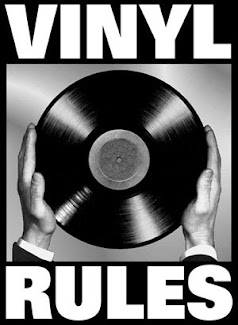 The following article by Lou Reed from Rolling Stone magazine says it all
The following article by Lou Reed from Rolling Stone magazine says it allDavid Bowie's contribution to rock & roll has been wit and sophistication. He's smart, he's a true musician and he can really sing. He's got such a big range: I like the Ziggy Stardust voice, but he's got a lot of different voices. He's got his crooner voice, when he wants to. And he has a melodic sense that's well above anyone else in rock & roll. Most people could not sing some of his melodies. He can really go for a high note. Take "Satellite of Love," on my Transformer album: There's a part at the very end, where he goes all the way up. It's fabulous.
There had been androgyny in rock from Little Richard on up, but David put his own patina on it, to say the least. He thought hard about that Ziggy character; he'd been studying mime, and he didn't do it just for laughs. He was very aware of stagecraft. He made an entire show out of that character and then he left it behind. How smart can you get? Can you imagine if he had to keep doing Ziggy? I mean, if you listened to what critics and audiences say, you'd be playing four songs over and over again. David set himself up to do other characters, like the Thin White Duke. And his take on American soul music, on albums like Young Americans, was incredibly good; the original material he wrote was great.
I can't pick a favorite record. It depends on my mood -- any of the dance records; Ziggy Stardust; I always liked "Bewlay Brothers," that track on Hunky Dory. And the albums he did with Brian Eno, like Low and Heroes, are phenomenal. He's always changing, so you never get tired of what he's doing. And I mean all the way up to now: "The Loneliest Guy" on his latest album, Reality, is a great song. Yet another one.
We're still friends after all these years, amazingly enough. We go to the occasional art show and museum together, and I always like working with him. I really love what David does, so I'm happy that he's still doing it and that he's still interested. I saw him play here in New York on his last tour, and it was one of the greatest rock shows I've ever seen. At least as far as white people go. Seriously.
From Issue 946 — April 15, 2004 Lou Reed Rolling Stone magazine
David Bowie was, and is the main man as far as I am concerned, and any song he recorded during the seventies could have gone on this blog. It all started for me with the performance of 'Starman' on Top of the Pops in 1972. Bowie in a multi-coloured jumpsuit with his arm limply placed around guitarist Mick Ronson's shoulder camping it up as if his life depended on it.
"Let all the children boogie"
"Let all the children boogie"
'Velvet Goldmine' is a song written and recorded during the Hunky Dory sessions in 1971. However, it did not make it onto the album and was eventually released as the B-side to the UK re-release of 'Space Oddity' in 1975 which eventually went all the way to number 1 in the charts. It was also used as the title for a 1998 film about the glam rock period that was loosely based on facets of Bowie's career at that time.

'The Prettiest Star' is a song originally released as a single in 1970.Bowie had recently re-recorded an old Deram track, 'London Bye Ta Ta', intended as a follow-up single to 'Space Oddity' in early 1970. However, the same sessions also produced a new composition named 'The Prettiest Star'. Bowie wrote it for Angela Barnett, reputedly playing it down the telephone as part of his proposal to her. He also chose it as his next single.
The track was significant in one other respect; it featured Marc Bolan on guitar, with whom Bowie would spend the next few years as a rival for the crown of the king of glam rock. Producer Tony Visconti, who brought the two aspiring pop stars together in the studio, recalled that the session went well until the end when Bolan's wife June remarked to Bowie, "Marc is too good for you, to be playing on this record!"
Despite receiving good notices, the single reportedly sold less than 800 copies, a major disappointment on the back of the success of 'Space Oddity'. In 1973, a more glam-influenced version was recorded and released on the album Aladdin Sane, with Mick Ronson recreating Bolan's original guitar part almost note-for-note.
Despite receiving good notices, the single reportedly sold less than 800 copies, a major disappointment on the back of the success of 'Space Oddity'. In 1973, a more glam-influenced version was recorded and released on the album Aladdin Sane, with Mick Ronson recreating Bolan's original guitar part almost note-for-note.
Sources:
David Buckley (1999). Strange Fascination - David Bowie: The Definitive Story: pp.80-81
Roy Carr & Charles Shaar Murray (1981). Bowie: An Illustrated Record: p.32
"One day though it might as well be someday
"One day though it might as well be someday
you and I will rise up all the way
all because of what you are
The Prettiest Star"The Prettiest Star - David Bowie
English musician, songwriter, composer and actor Simon Turner released a cover version of The Prettiest Star in 1973.
English musician, songwriter, composer and actor Simon Turner released a cover version of The Prettiest Star in 1973.




















.jpg)























